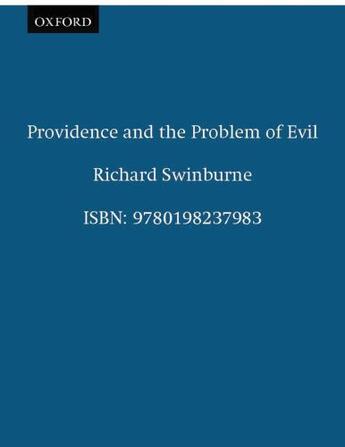-
Nombre de pages : (-)
-
Collection :
(-)
-
Genre :
(-)
-
Thème :
Non attribué
-
Prix littéraire(s) :
(-)
Résumé:
Why does a loving God allow humans to suffer so much? This is one of the most difficult problems of religious belief. Richard Swinburne gives a careful, clear examination of this problem, and offers an answer: it is because God wants more for us than just pleasure or freedom from suffering.... Voir plus
Why does a loving God allow humans to suffer so much? This is one of the most difficult problems of religious belief. Richard Swinburne gives a careful, clear examination of this problem, and offers an answer: it is because God wants more for us than just pleasure or freedom from suffering. Swinburne argues that God wants humans to learn and to love, to make the choices which make great differences for good and evil to each other, to form our characters in the way we choose; above all to be of great use to each other. If we are to have all this, there will inevitably be suffering for the short period of our lives on Earth. But because of the good that God gives to humans in this life, and because he makes it possible for us, through our choice, to share the life of Heaven, he does not wrong us if he allows suffering.
Providence and the Problem of Evil is the final volume of Richard Swinburne's acclaimed tetralogy on Christian doctrine. It may be read on its own as a self-standing treatment of this eternal philosophical issue. Readers who are interested in a unified study of the philosophical foundations of Christian belief will find it now in the tetralogy and in his trilogy on the philosophy of theism.
Donner votre avis















